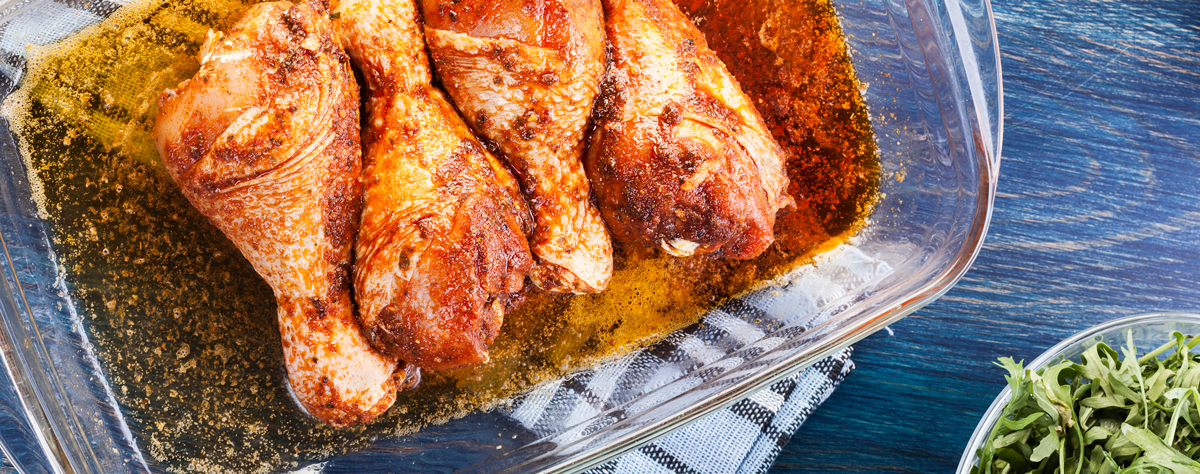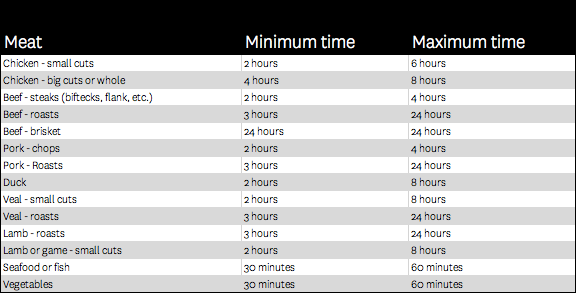
Marinade vs Dry Rub: What Should We Use?
And you? What do you use to marinate your food and meats? There are actually two schools of thoughts; some use the marinade and swear by it. Others prefer the dry rub and couldn’t use anything else. So… what do you use?
Which one’s better? Marinade? Dry rub? What if we told you both are the best? In fact, there are pros and cons to the marinade, same for the dry rub. There are situations where the regular liquid marinade is a fit, and sometimes, the dry one seems to be the path to take.
Let’s see both pros and cons of each of it.
Marinade
Certain people swear by the marinade and we ought to agree with them. A marinade allows the flavours to penetrate deeper in the meat, as long as we let it marinate for a few hours.
A marinade is generally a mix of three ingredients; a fat, like oil, spices or herbs, for the flavours, and an acid liquid, such as vinegar, alcohol or even lemon juice. The acid will come to tenderize the meat, eliminating the fibers in it.
Sometimes, you may hear that a marinade’s useless, especially if you don’t let the meat marinate, because anyway, while cooking, the liquids come to evaporate, so will the marinade.
Make sure to let your meat marinate for an appropriate period of time. Not marinated enough, you won’t get the desired results. Too marinated, meat will be altered. Here’s a table that’ll help you.

So, the marinade’s main inconvenient is related to time. You have to plan your meals, which is not something people tend to do. Right?
Chef’s tip: Don’t marinate those nice steaks!
In order to get more out of your awesome steaks – filet mignon, ribeye, aged meat, Prime, AAA, etc. – you shouldn’t marinate them. Just season them, or you’ll lose that special and natural buttery or hazelnut taste.
Dry Rub
A dry rub is a mix composed by seasonings (salt, pepper, etc.) and spices that we rub onto the meat. As its name suggests, a dry rub includes no liquid nor moist ingredients whatsoever.
It creates a simply tasty crust on the meat, taste that these dry rub lovers look for. Furthermore, if you rub a right quantity, you might get a protection crust, keeping all the juices inside. And depending on the rub’s ingredients, the meat will come to caramelize easier.
Though, unlike the liquid marinade, dry rub doesn’t tenderize meat. It only adds flavours on the surface.
Chef’s tip: Don’t rub, do pat.
When you add your dry rub on your meat cut, don’t rub, as its name implies. Go for a patting technique, and be delicate, please.
In conclusion
So… What should we use? Two answers are possible here. 1) If you have a tough and muscular meat cut, go with the marinade. 2) If you’re lacking time, you should use the dry rub. Or you could just go with the flow according to your mood and taste.
Additional warnings:
-
If you choose to marinate, make sure to store your food in a closed container, in the refrigerator. In the fridge, because if you let it marinate at room temperature, there will be an overgrowth of bacteria. And closed, to avoid cross-contamination with other foods inside the refrigerator.
-
Once your meat (raw and marinated) is out of the marinating container, set is aside and/or wash it.
-
You should not use marinade’s leftovers as a sauce. If you wish to do so, heat it in order to thicken it.


